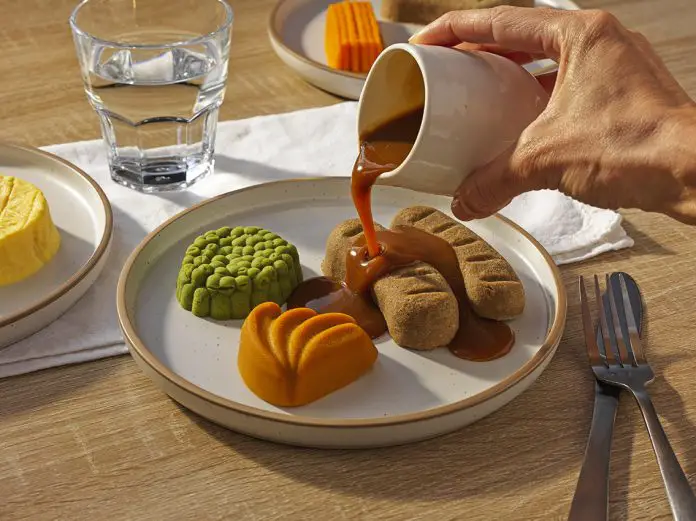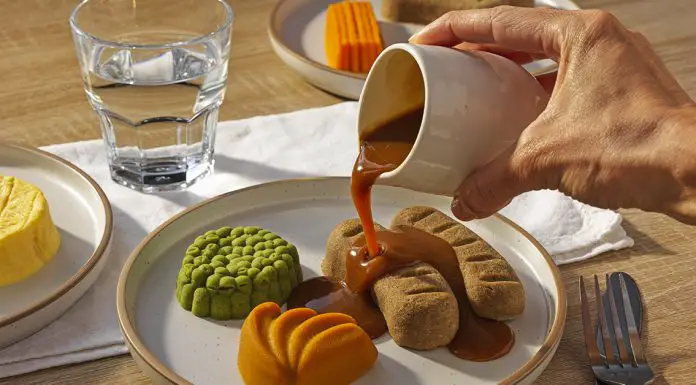Pure Food Co takes a food science and technology approach to manufacturing ready-made safe and delicious textured-modified foods for aged care and hospitals. They were finalists in the 2024 Future of Ageing Awards run by this publication. Chris Deed is the Australian Director.
The introduction of the new Aged Care Standards has turned the spotlight directly onto mealtimes, where food safety, nutrition, and resident dignity are now critical benchmarks. Compliance expectations demand a higher level of accountability than ever before, which is positive for residents, families, and the sector as a whole.
But we also know it brings added pressure to aged care kitchens, many of which may already be stretched, due to the significant resource demands of preparing texture-modified foods (TMF).
Our Time and Motion study looked at the complexities involved and revealed that producing a single variety of TMF in-house can require up to 23 steps.
It’s a reminder that meeting new Aged Care Standards that come into effect in July is not about tweaking menus – TMF requires time, skill, experience, and systems that can consistently deliver.
For too long, TMF has been treated as a niche area, or simply a way to meet the basic dietary needs of residents with swallowing difficulties. But TMF is about producing a product that achieves nutritional, textural and visual standards every single time. It’s a huge challenge, especially when in aged care, food is more than nutrition; it’s a medicine that supports wound care, helps prevent falls, and keeps residents engaged and healthy.
With seven standards now guiding everything from governance to the dining experience, providers have a clearer framework for lifting the quality of food and care across the board. While it brings operational demands, it also acts as a catalyst for genuine improvement. TMF, in particular, must now meet the International Dysphagia Diet Standardisation Initiative (IDDSI) framework ensuring every meal meets the right texture, nutritional content, and presentation to support both safety and dignity at mealtimes.
With up to 23 steps involved, every stage in the preparation of texture-modified meals matters. Inconsistencies in batches, variations in texture, and lapses in presentation, often caused by staff training gaps or equipment wear, carry serious risks, from choking hazards to nutritional gaps. However, recognising these risks also creates a clear pathway for improvement. With the right systems, training, and support in place, providers can reduce variation, improve safety, and deliver meals that consistently meet the highest standards of care.
Many providers assume that DIY TMF is the most cost-effective or easier option but when you factor in the costs of labour, training, food waste, equipment maintenance and compliance documentation, the economics can shift quickly. Add the cost of supplements when meals don’t meet nutritional benchmarks or the lost time when a batch has to be redone, and the financial burden can completely blow out.
As just one example, the commercial-grade blenders required to puree food to the correct IDDSI level dull over time and need frequent replacement. Add to this, the cost of service contracts, staff downtime during equipment failure, and the variability that comes from different staff interpreting recipes or texture guidelines differently, and you have a system that’s not just costly, it’s dangerous.
But rather than seeing the seven new aged care standards as a burden, there’s an opportunity here to embrace support, innovation, and partnerships that help providers meet these standards with confidence and continue to deliver the kind of care that everyone in aged care deserves.
The sector is full of dedicated people doing their best with limited resources. But there are ways to ease the pressure. Outsourcing TMF production to specialist providers is one of them. It’s not about taking something away from your kitchen team, it’s about giving them back time, reducing risk, and ensuring residents receive safe, nutritious, dignified meals, all day, every day.
Ultimately, TMF is about far more than texture. It’s about trust. It’s about meeting a resident’s complex needs with care and consistency. And it’s about helping aged care homes do what they do best – looking after residents.










